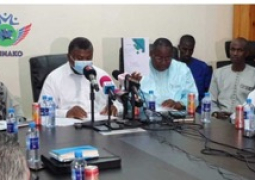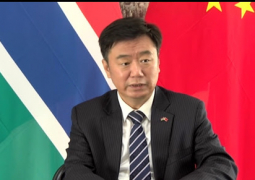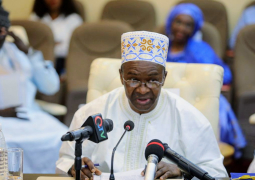“As part of our national response to the adverse effects of climate change, a provisional amount of D10 Million was set aside in June of 2021 in order to respond to urgent circumstances and this amount will be scaled up after a full assessment is completed,” according to a news release from the Ministry of Finance and Economic Affairs.
“However, we stand ready to support temporary interventions to alleviate the plight of the affected individuals during these difficult times.”
The ministry further says that the Gambian economy in 2020 was marginally contracted by 0.2% but better than the sub-Saharan countries which recorded an average contraction of 3%.
“The country experienced a 62% drop in tourism arrivals but this was offset by growth in agriculture and a boost in the construction sector, financed mainly by remittances inflows. The government stimulus package of D2.8 billion also helped to stimulate economic activities and eased the impact on growth. The economy is expected to grow by 4.9% in 2021 with some recovery in the tourism sector anticipated in the fourth quarter of this year.”
“In 2020, Revenue performance has been broadly in line with its pre-pandemic targets. tax revenue was close to its pre-pandemic projections reaching D10.3 billion or 10.5% of GDP. Overall domestic revenue registered an actual of D13.5 billion, equivalent to 13.8% of GDP. During the peak of the pandemic, our development partners provided assistance in the form of budget support equivalent to 4.7%of GDP, or D4.6 billion. A lot of supportive policies were taken to dampen the impact of the pandemic including the 20% reduction of the CIF reference value of essential commodities and non-application of penalties for late filing of tax returns. Petroleum retail prices were highly subsidized in the first half of the year with a cumulative cost amounting to D135.1 million.”
To improve its public financial management, the government says it decided to roll out the integrated financial management information system to all Local Government Authorities, Statutory Government Agencies and Self-Accounting projects. “At the moment, all LGA are connected to the IFMIS but face internet challenges that should be addressed in order to maximize the benefits of the system. Furthermore, there are plans to roll out the system to the remaining projects and statutory agencies. This effort will help to improve the quality of financial statements and enhance the monitoring and statutory reporting requirements of these institutions.”





